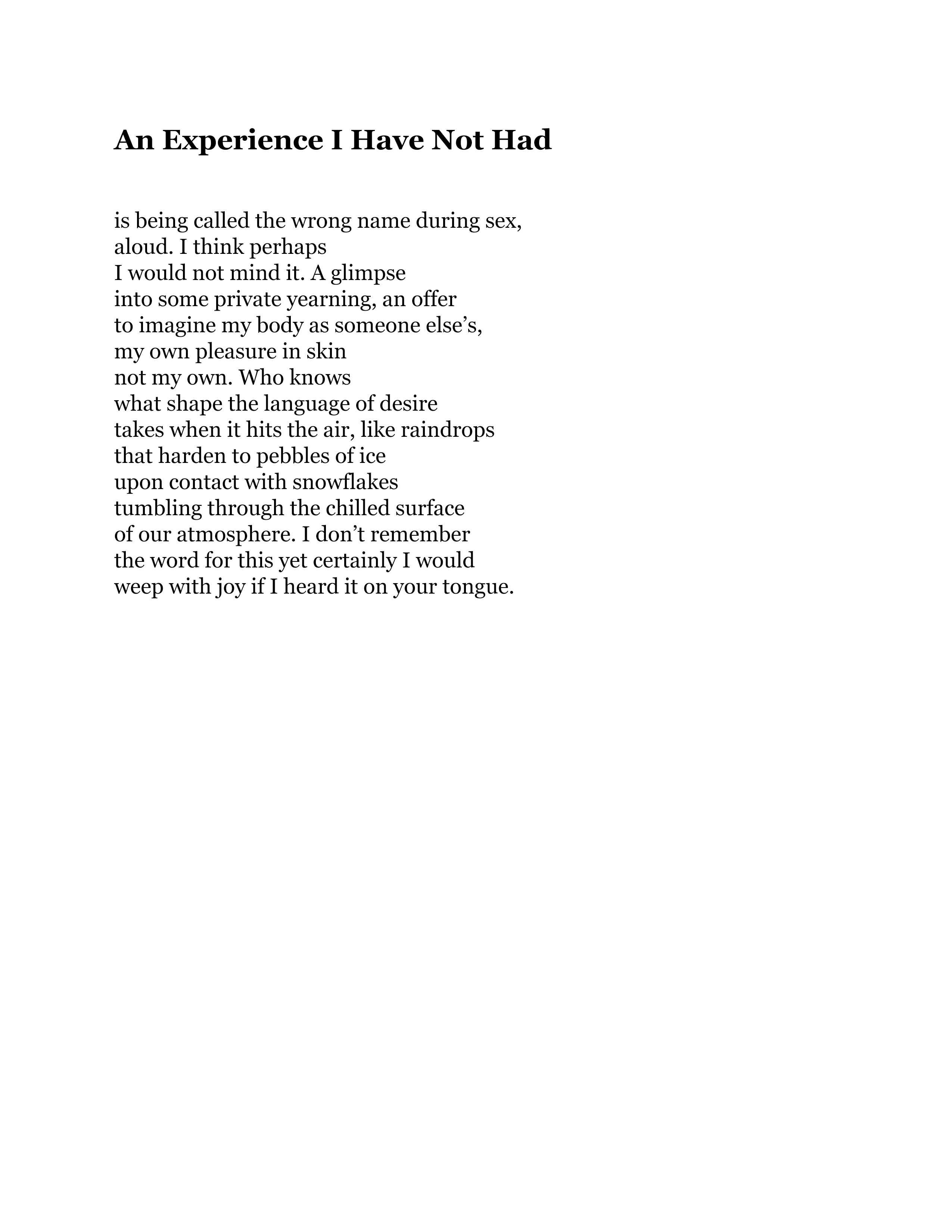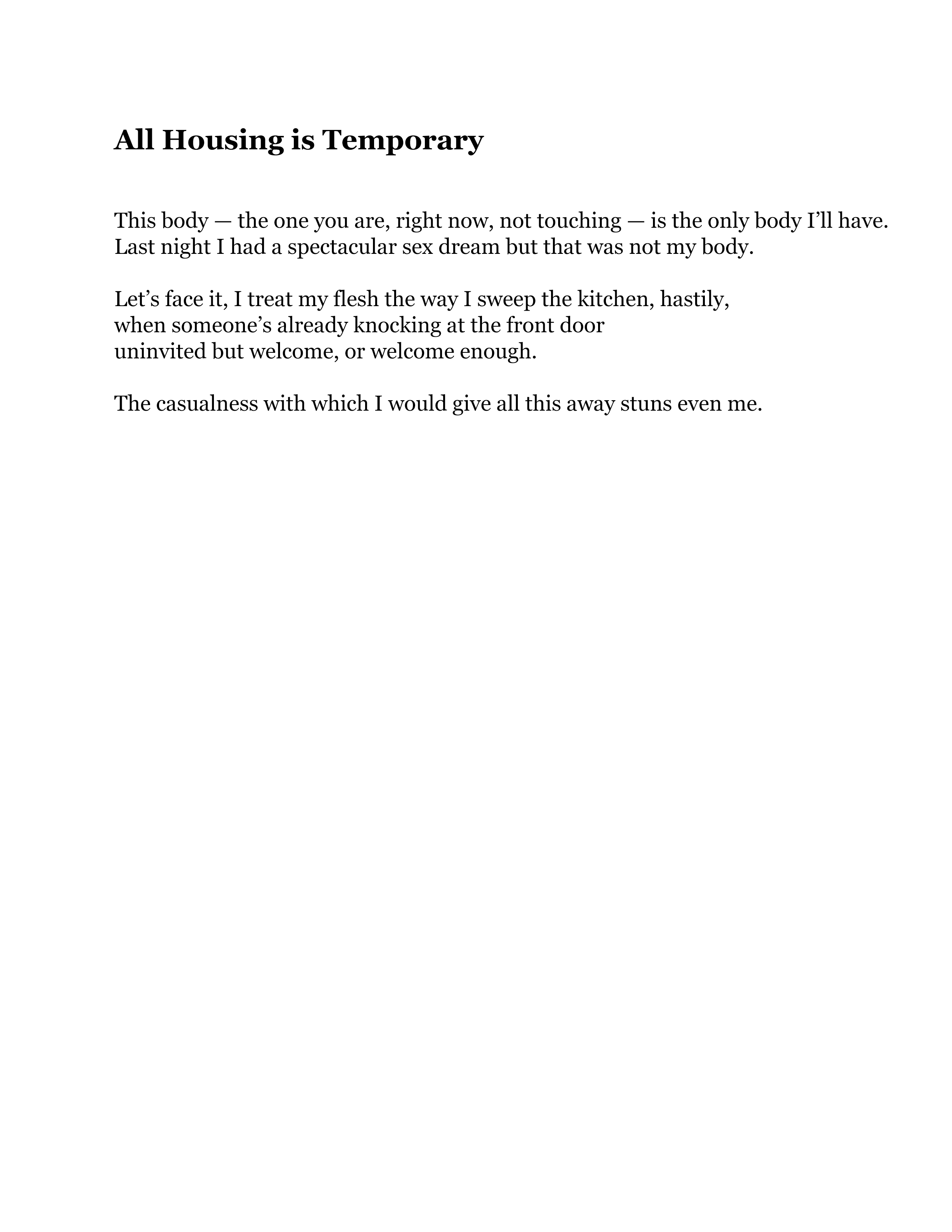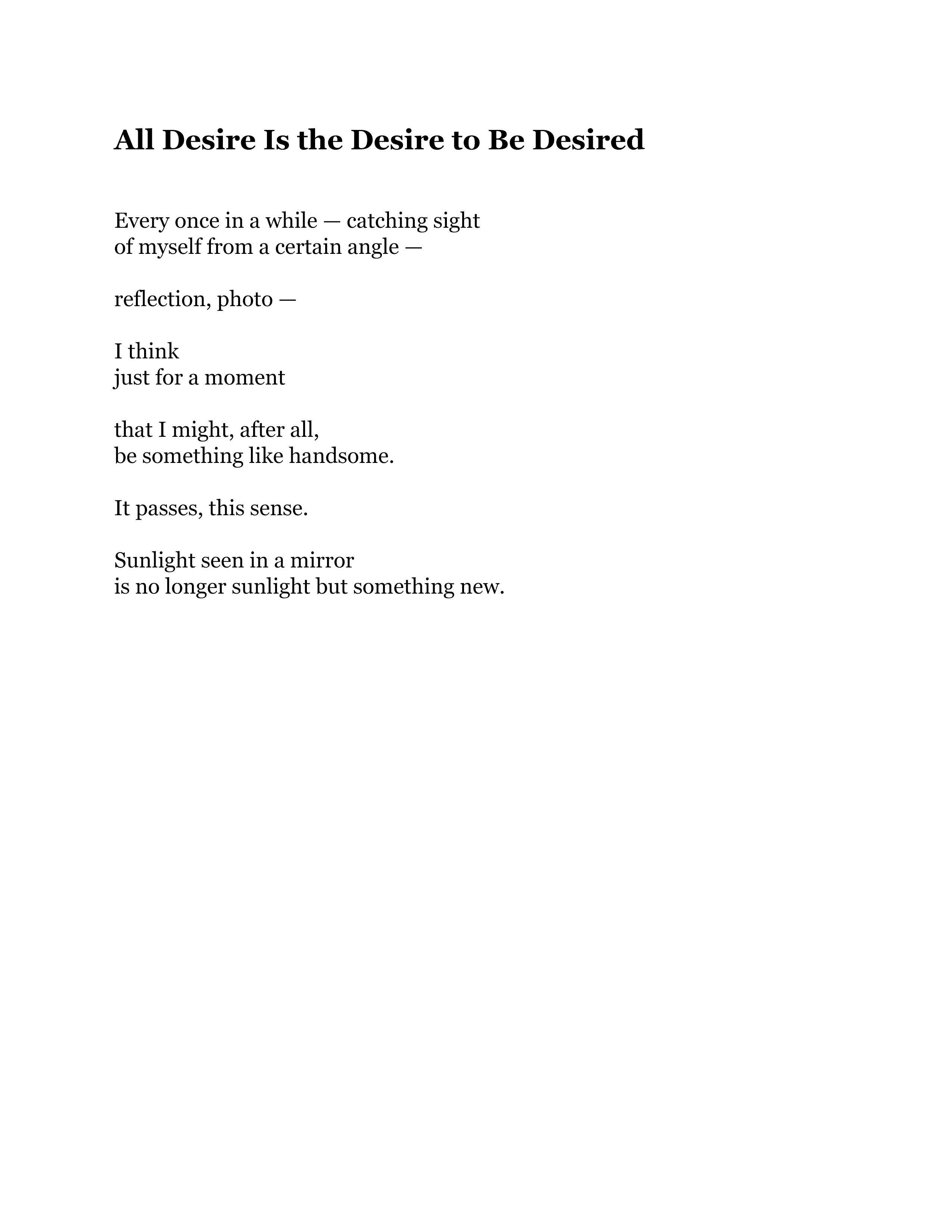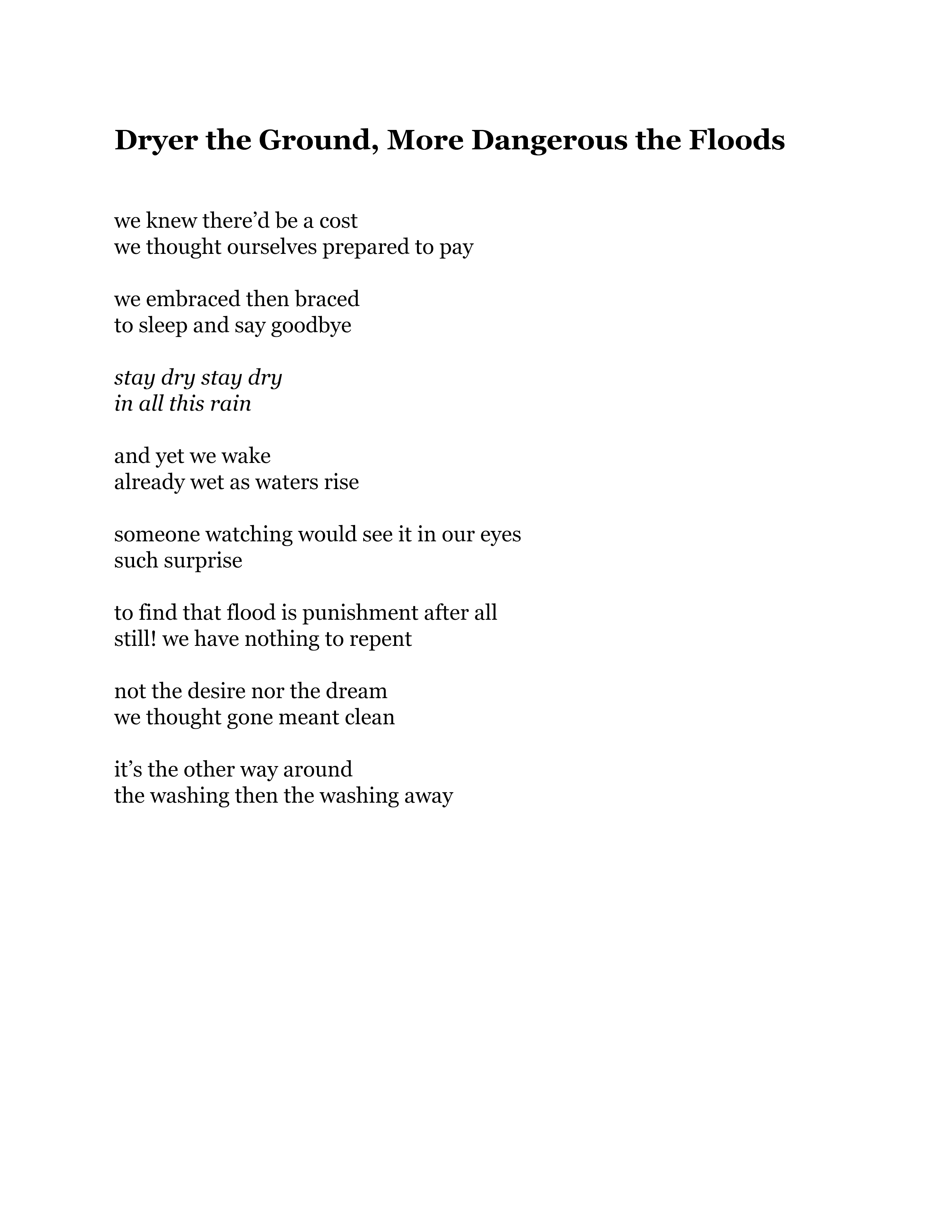5 poems by Amorak Huey
1 essay by Monica Rico,
on the poems of Amorak Huey
A few weeks ago, I was talking to my friend about relatability in poetry. We were talking about whether or not it is essential to understanding poems. Relatability, to me, is the gateway; it is the key that opens up the world of poetry to our senses. In other words, it is the ah ha moment we feel when we recognize some small part of ourselves in an author’s work. For instance, if a poem begins domestically, because of my gender I relate to it. This is stereotypically where I am supposed to empathize with the “I” or speaker of the poem because from my birth, I have been assigned this feminine role as caretaker. So, when I first read “If I’m on My Knees” I immediately thought of cleaning and perhaps if I were a man or a religious person, I would instead think of prayer. This poem does such a lovely job of setting this juxtaposition up by tying prayer to begging, which then leads us to cleaning.
If I continue on my trail of domesticity, like looping the cord of the vacuum around my elbow and fist in “All Housing Is Temporary” where the first line captures the solidarity found between home and body. There is recognition in how we “hastily” take care of both until company is “knocking at the front door.” This company is both “uninvited” and welcomed, meaning it could be a lover, an illness, tenderness, or a dinner date which are all met with a “casualness” that “stuns” the speaker who so easily gives herself away to what, desire?
Over the past two years, I have found it almost impossible to relate to any poetry. I find myself looking between the periods, commas, and line breaks. I dig into the words and remove their papery skins, hoping the scent will rub off on my fingers. It’s like how I didn’t notice, during my first round of chemo, my eyebrows had fallen out, along with a good portion of the hair on my head until I saw a picture of myself. During those sedentary months of my life, I felt trapped by my house; it was a constant reminder of my limitations. I could hardly do the simple things I needed to take care of myself, like tie my own shoes. And I remember the first time I did laundry, I was so unbelievably happy to do something that was normal. I felt like a human being again, instead of a patient.
After the darkness of January, and my switch to a new medication, I caught “sight / of myself from a certain angle” and I could no longer see the delicate pink of my scalp. My eyebrows, sparse as they are were there and “I think / just for a moment // that I might, after all, / be something like handsome.” I love the choice of the word, “handsome” here. It doesn’t make me think of beauty; it instead makes me think of stoicism and survival. Handsome is a word someone of a certain age would use to describe their position in life as earned.
I’m not sure when it became not en vogue to personally relate to poems. I’m not sure when that became an easy out to discredit a poem’s capability. Because sometimes, that’s all we have —these quick moments of humanity, gratefulness, and joy in being alive in a messy world. It’s that moment when we realize we are the correct size to fit in the door to wonderland; it is the moment the poem belongs to us, the reader, and it is out of the author’s hands.





